Meeting the Future: Air Minicabs
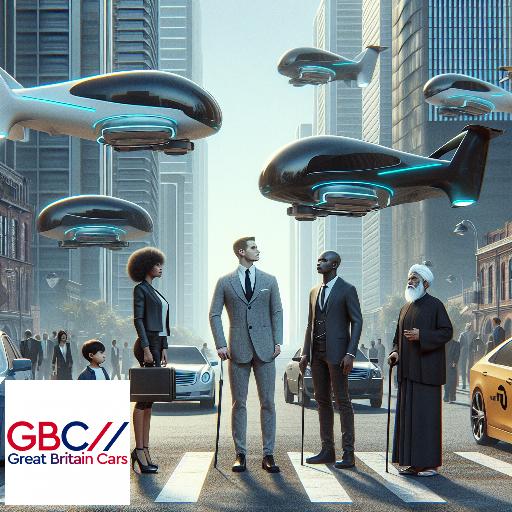
Concept of Air transfers
The concept of Air transfers is a revolutionary idea that is set to redefine the future of transportation. This innovative concept involves the use of small, autonomous aircrafts, designed to transport people or goods from one location to another. The idea is to leverage the airspace to alleviate the congestion on the roads, thereby reducing travel time significantly. Air transfers are expected to be equipped with advanced technology, including AI and machine learning, to ensure safe and efficient travel. They will be capable of vertical take-off and landing, eliminating the need for traditional runways. This makes them ideal for urban environments, where space is often limited. The introduction of Air transfers will not only revolutionize the transportation industry but also contribute to a more sustainable future. By using electric propulsion, these air transfers will produce zero emissions, helping to combat climate change. The future of transportation is in the skies, and Air transfers are leading the way.
Technological Requirements for Air transfers
As we look towards the future, the concept of air transfers is becoming increasingly plausible. The technological requirements for these futuristic vehicles are vast and complex. Firstly, they would need advanced navigation systems to ensure safe and efficient travel. This would likely involve a combination of GPS technology and sophisticated onboard sensors to detect and avoid obstacles. Secondly, air transfers would require robust communication systems to maintain contact with ground control and other aircraft. This would be crucial for coordinating traffic and responding to emergencies. Thirdly, these vehicles would need to be powered by clean, sustainable energy sources to mitigate their environmental impact. This could involve electric propulsion systems or even hydrogen fuel cells. Lastly, air transfers would need to be equipped with advanced safety features, such as emergency landing capabilities and collision avoidance systems. In conclusion, while the technological requirements for air transfers are significant, they represent an exciting frontier in transportation technology. With continued innovation and development, the dream of hailing a transfer in the sky could soon become a reality.
Potential Manufacturers of Air transfers
As the world evolves, the transportation industry is not left behind. The concept of Air transfers is gaining momentum, promising a future where traffic congestion will be a thing of the past. Several manufacturers are already positioning themselves to meet this future demand. Leading the pack is Uber, with its Uber Elevate program, aiming to launch flying transfers by 2023. Airbus is also not left behind, with its Vahana project, an autonomous, single-passenger air transfer. Boeing is also in the race, having successfully completed the first test flight of its autonomous passenger air vehicle. Other potential manufacturers include Bell, which unveiled its full-scale air transfer, the Bell Nexus, at CES 2019. Joby Aviation, a California-based aerospace company, is also developing an electric air transfer, having raised $100 million in funding. These manufacturers are not only shaping the future of transportation but also paving the way for a more sustainable and efficient way of commuting. The future of Air transfers is indeed promising.
Regulatory Challenges for Air transfers
The future of transportation is set to take to the skies with the advent of air transfers. However, this innovative concept is not without its regulatory challenges. The primary concern is safety. Regulators must ensure that these flying transfers can operate safely in all weather conditions, and that they can avoid other aircraft and obstacles. Additionally, there are concerns about noise pollution and the impact on wildlife. The infrastructure for air transfers also needs to be developed, including takeoff and landing pads and air traffic control systems. Privacy is another issue, as these vehicles could potentially fly over private properties. Lastly, there are questions about who would be responsible in the event of an accident. Despite these challenges, companies are forging ahead with the development of air transfers, confident that they can work with regulators to address these issues and usher in a new era of urban mobility.
Economic Impact of Air transfers
The advent of Air transfers is set to revolutionize the transportation industry, promising a future of cleaner, faster, and more efficient travel. Economically, this innovation could have profound implications. Firstly, it could significantly reduce congestion and associated costs. According to INRIX, traffic congestion costs the U.S. economy around $87 billion annually. Air transfers could alleviate this burden, saving billions in lost productivity and fuel costs. Secondly, the Air transfer industry could create new jobs, from manufacturing to maintenance, and stimulate economic growth. Thirdly, it could boost tourism by providing a novel and convenient mode of transport. However, the transition to Air transfers also presents challenges. Infrastructure for landing pads, refueling, and maintenance will require substantial investment. Regulatory hurdles will need to be overcome, and public acceptance won. Despite these challenges, the potential economic benefits of Air transfers are too significant to ignore. As we look to the future, it's clear that Air transfers could play a crucial role in shaping our economies and societies.
Environmental Impact of Air transfers
The future of transportation is set to take a dramatic turn with the introduction of air transfers. However, their environmental impact is a significant concern. Air transfers, also known as flying transfers, are expected to revolutionize urban mobility by reducing congestion and travel time. But, their potential environmental footprint cannot be overlooked. The energy required for vertical take-off and landing, as well as maintaining altitude, is substantial. If powered by fossil fuels, air transfers could contribute significantly to air pollution and greenhouse gas emissions. Therefore, it's crucial that these vehicles are powered by renewable energy sources to mitigate their environmental impact. Additionally, noise pollution is another concern that needs addressing. While air transfers promise a future of efficient and convenient transportation, it's essential that their development and implementation are carried out with a keen focus on sustainability. Only then can we truly embrace this futuristic mode of transport without compromising our planet's health.
Social Implications of Air transfers
The advent of Air transfers is set to revolutionize the future of transportation, bringing with it a host of social implications. These flying transfers, designed to alleviate traffic congestion and reduce travel time, could significantly alter our urban landscapes and daily routines. The most immediate social impact of Air transfers would be the democratization of air travel. No longer a luxury reserved for the affluent, air travel could become a commonplace mode of transport, accessible to all. This could foster greater social mobility and connectivity, bridging the gap between remote areas and bustling city centers. However, the introduction of Air transfers also raises concerns about noise pollution, safety, and the potential widening of socio-economic disparities. The affordability of these services remains a question, potentially leading to a new form of transport divide. In conclusion, while Air transfers promise a future of efficient and innovative transportation, it is crucial to address these social implications to ensure an equitable and sustainable transition to this new era of mobility.
Potential Markets for Air transfers
As urbanization continues to grow, the need for efficient and sustainable transportation solutions becomes more pressing. One potential market that is gaining traction is the air transfer industry. These futuristic vehicles, also known as flying transfers or eVTOLs (electric vertical take-off and landing), promise to revolutionize urban mobility by providing a faster, cleaner, and more efficient mode of transport. Cities with high traffic congestion like Los Angeles, New York, and London are potential markets for air transfers. These cities could greatly benefit from this technology, reducing travel time and carbon emissions. Moreover, emerging markets like India and China, with their rapidly growing urban populations, also present significant opportunities. The future of air transfers also hinges on advancements in autonomous technology, which could make these vehicles more accessible and affordable. As we look towards a future of smart cities, air transfers could play a crucial role in shaping our urban landscapes and the way we travel.
Future Predictions for Air transfers
As we step into the future, the concept of air transfers is becoming more of a reality than a fantasy. These flying transfers are predicted to revolutionize the way we travel, offering a solution to the ever-increasing traffic congestion in urban areas. Companies like Uber and Airbus are already investing heavily in this technology, with plans to launch their services in the next few years. Air transfers will not only reduce travel time significantly but also contribute to a cleaner environment by reducing carbon emissions. They are expected to be powered by electricity, making them a sustainable mode of transport. However, there are challenges to overcome, such as safety regulations, infrastructure, and public acceptance. Despite these hurdles, the future of air transfers looks promising. As technology advances, we can expect to see a sky filled with air transfers, making our commute faster, cleaner, and more efficient. The future is indeed looking up.
Case Studies of Air transfers
Air transfers are emerging as a promising solution to the growing problem of urban congestion and pollution. Several case studies have demonstrated their potential for revolutionizing urban transportation. For instance, Uber has been testing its UberAIR service in Los Angeles, Dallas, and Melbourne, aiming to provide affordable, efficient, and eco-friendly air transfer services. Similarly, Volocopter, a German start-up, has successfully tested its air transfer in Dubai, showcasing the feasibility of such services in densely populated cities. Another notable case is EHang, a Chinese company, which has been conducting passenger-carrying drone tests since 2018. Their autonomous aerial vehicle, EHang 216, has been approved for commercial use in China. These case studies highlight the potential of Air transfers in meeting future transportation needs. They offer a glimpse into a future where air transfers are a common sight, providing a fast, efficient, and sustainable mode of transport, reducing congestion, and contributing to a cleaner, greener urban environment.
Our Latest Blog Posts
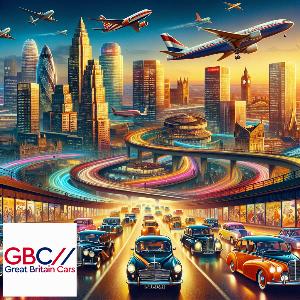
Heathrow to the Beating Heart of Birmingham: City Guide
Blog about Heathrow to the Beating Heart of Birmingham: City Guide

Exploring Londons Green Spaces: A Minicab Adventure
Blog about Exploring Londons Green Spaces: A transfer Adventure
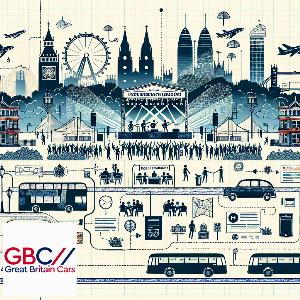
Experience Londons Music Festivals: Travel Tips and Minicabs
Blog about Experience Londons Music Festivals: Travel Tips and Transfers

Heathrow Airport: A Pioneer in the Air Minicab Industry
Blog about Heathrow Airport: A Pioneer in the Air transfer Industry
Blogs Pages
Efficient Airport Minicabs: Maximizing Your Time in London
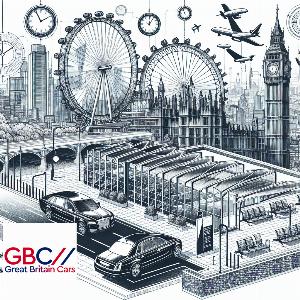
Blog about Efficient Airport Transfers: Maximizing Your Time in London...
Airport Minicabs: What to Expect When You Arrive in London

Blog about Airport Transfers: What to Expect When You Arrive in London...
Londons Best Routes: Scenic Drives from Heathrow to the City
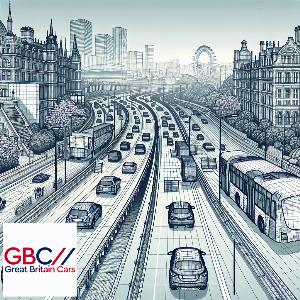
Blog about Londons Best Routes: Scenic Drives from Heathrow to the City...
First-Class Experience: Upgrading Your Airport Minicab
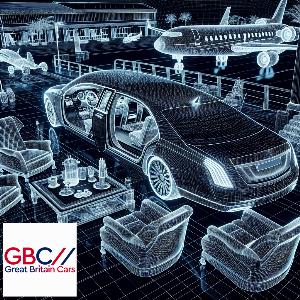
Blog about First-Class Experience: Upgrading Your Airport Transfer...
Our Clients Testimonials

Amenability
They have very neighborliness .They are genuinely agreeable in nature.
Jonson





Best rates
They are also economically best as well. They have very reason able rates.
Mark





Good pick ups
They pick me up on the exact time. They provide absolutely best.
Adams





Fair characteristics
It has fair characteristics, kind , polite ,conversational and incredibly strong driver.
Robert





Professionalism
Very professional and trustful drivers they have . We will use this again.
Olivia





Great pick ups
They jolt of energy on the specific time. They give totally best.
Donald





Extraordinary cab
Extraordinary cab and magnificent can support. Agreeable seats every single thing they are giving.
Nancy





Great cab
Great cab and awesome cab service. Comfortable seats each and every thing they are providing.
Richard





Politeness
They have very politeness .They are truly friendly in nature.
Nelson





Maintenance
The vehicle is well maintained and cleaned . It was very fair.
Joseph





Amazing skill
Exceptionally proficient and trustful drivers they have . We will utilize this in the future.
Sarah





Safe
Great Britain Cars cab is mostly safe cab. One can travel secure with them.
John





Simple booking
Simple booking and the driver was on time , respectful and supportive.
Emily





Remarkable help
It is astoundingly fantastic help and it's also reliable and on time for the most part. I'm genuinely amazed by it.
Anna





Chief drive administration
They are best in UK. They are giving chief drive administration.
Kevin





Basic booking
Basic booking and the driver was on time , aware and strong.
Nathan





Great service
It is very great service and it's also reliable and on time always. I am really impressed by it.
Aana





Shocking skill
Astoundingly fit and trustful drivers they have . We will utilize this later on.
Lopez





Best servive
The vehicle is by and large around remained mindful of and cleaned . It was especially fair.
Perez





Astonishing ability
Skilful and trustful drivers. We will use this later on.
Evengly




